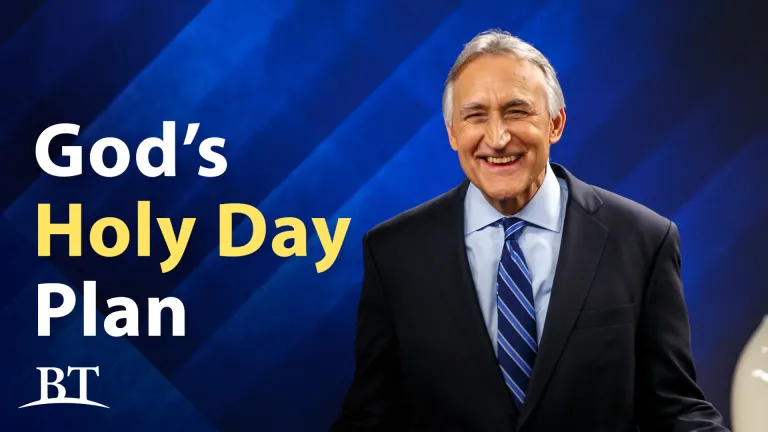Following is a paper 11-year-old Tessa Black wrote for a class in school about why we keep the Holy Days. Tessa and her family attend the East Texas congregation.
My family doesn't celebrate Christmas, Easter, Valentine's Day or any other religious holiday like most people do. People sometimes think that means we are not Christians, but we are. We believe Jesus Christ is the Son of God, and was born on earth to the virgin Mary, to die for us so we can have a chance to live forever. We read the same Bible as everyone else.
The reason we don't keep Christmas is because the Bible doesn't tell us to. It tells the story of Jesus' birth, but not as a Holy Day. It doesn't even tell us what day He was born. Dec. 25 is a day called the winter solstice. Most of the traditions of Christmas come from people called pagans who lived before Christ was born and worshipped idols. Later, during the Roman Empire , Christians started keeping these traditions in Jesus' name and today everyone thinks that's OK.
But the Bible says we shouldn't take away or add to God's laws. And we are not supposed to reject God's Commandments so that we can keep man's traditions, even if they seem fun. So that's why my family doesn't celebrate Christmas.
We do celebrate Holy Days from the Bible. These Holy Days were given to God's people in the Old Testament and were kept by Jesus and the apostles in the New Testament. I love God's Holy Days because they teach me to remember things that God has done for His people in the past and His plan for saving all mankind in the future.
I want to tell you about the festivals that are in the Bible and what they mean to me.
Passover: We remember God's angel passing over the houses of His people and sparing their firstborn sons in Egypt .
We also learn that the first step in God's plan to save us is for us to accept Christ's death as a Passover sacrifice for us and be baptized.
First and Last Day of the Feast of Unleavened Bread: We remember God rescuing His people from slavery in Egypt and that they had to eat unleavened bread. Unleavened bread has no yeast to puff it up, so it is flat.
We also learn that the next step in God's plan is to try to take the sin out of our lives. Sin is like leavening, it puffs us up and makes us proud. God wants us humble, like the flat bread. During this week we eat unleavened bread and take all of the puffy bread out of our house to remind us to clean the sin out of our lives.
The Day of Pentecost (also called the Feast of the Firstfruits): We remember that Jesus started His small Church with His apostles and gave them the Holy Spirit as a comforter while He is gone.
We also learn that the next step is that we can be one of God's firstfruits in His harvest when He returns.
The Feast of Trumpets: We learn that this day is the day Christ returns to rule the earth and set up His Kingdom. It will not be a secret when He comes, because angels will blow trumpets so loud that the whole world will know.
The Day of Atonement: We learn that when Christ returns, Satan will be put away for a while and we will finally be at one with God without the devil causing trouble. Atonement kind of means "at-one-ment." On this day God tells us to fast for 24 hours, from sundown to sundown. Fasting means we don't eat or drink anything, not even water. This teaches us that if we do not become at one with God, we have no hope and will die.
The Feast of Tabernacles (Feast of Booths): We learn that next is 1,000 years of peace in God's Kingdom here on earth. God will rebuild the earth and Jerusalem will be the capital. King David will rule under God. All people will be taught to obey God's laws and keep these Feasts every year. The Bible even says that people who won't keep the Feasts will have no rain for their crops until they obey.
The Feast of Tabernacles is my favorite festival. We must leave our house and live in temporary houses and live like God's Kingdom was already here for a whole week. We go to really cool places and do lots of fun things as a family. We also go to church every day for two hours—some days twice!
The Last Great Day: We learn that when the 1,000 years is over, God will resurrect all the people that ever lived and died but were not part of His Church. Billions of people will be brought back to life and put back together as skin and bones and given a chance to learn His laws and His way of life. God loves all His children and hopes that "not one should perish." Everyone gets a chance to be in God's family and live forever as a spirit being like God. This will be the GREATEST DAY EVER, because all friends and families will be together again and know God.
I hope you enjoyed learning about these Holy Days and why I keep them, and now you understand why I don't celebrate Christmas. UN







